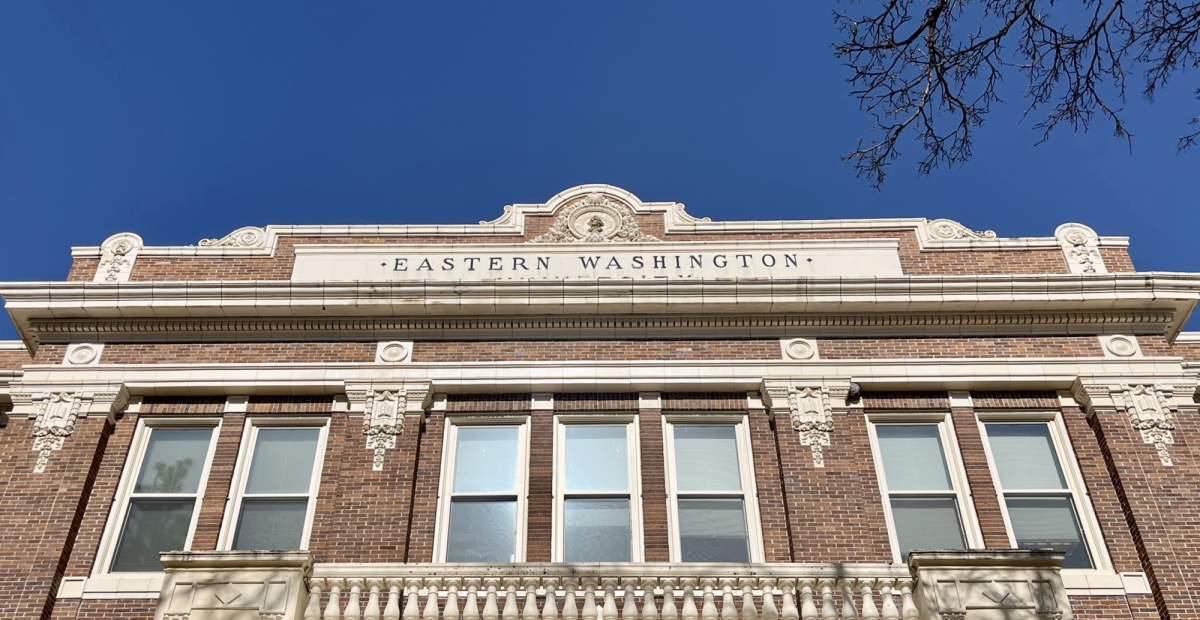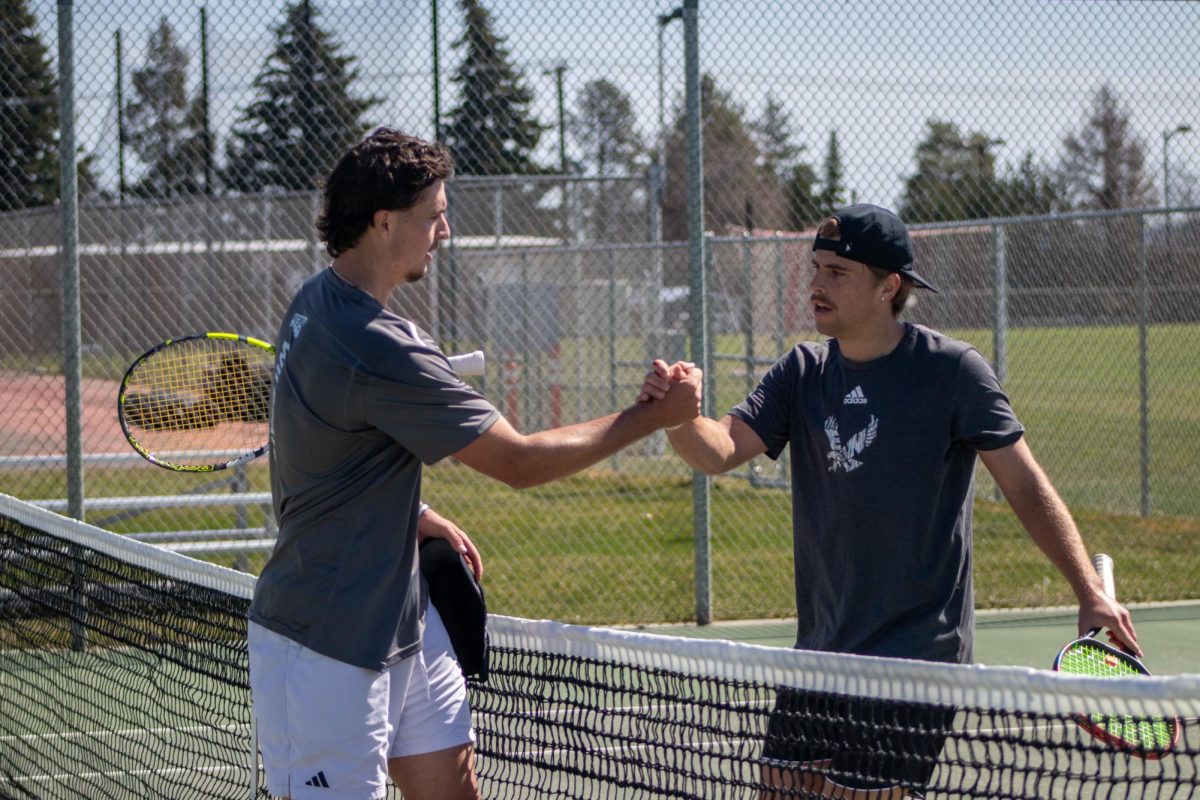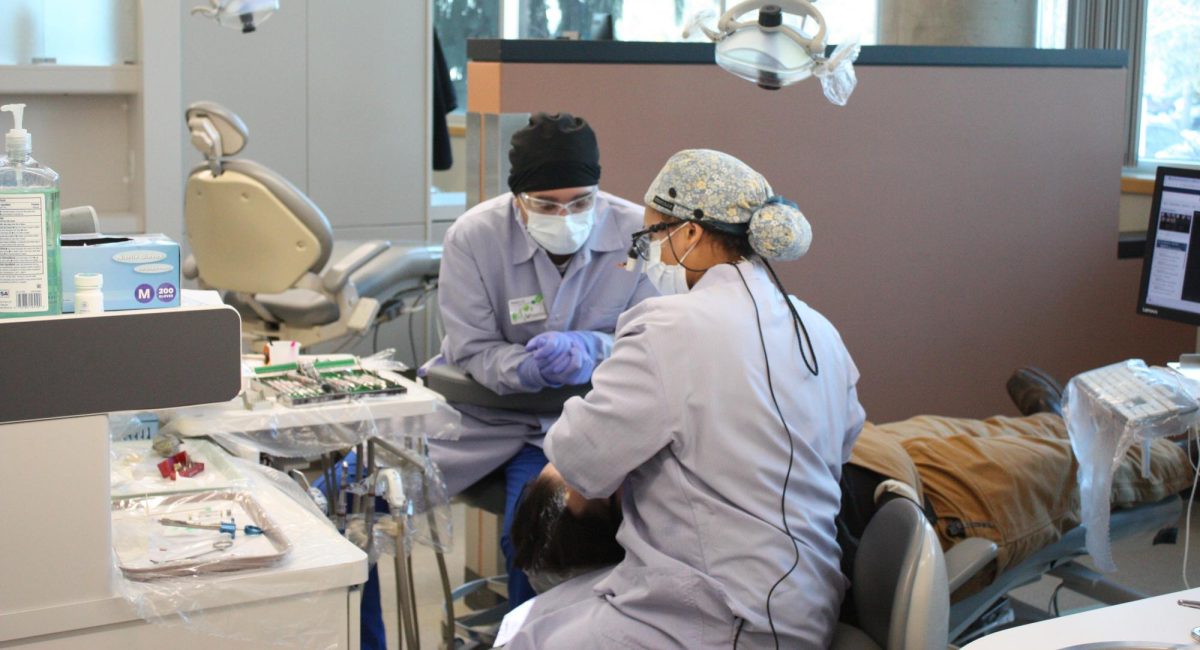Hunger and Homelessness Awareness Week
December 3, 2015
The national Hunger and Homelessness Awareness Week began Nov. 14 and ended Nov. 21. EWU’s Office of Community Engagement and ASEWU ran different campaigns that emphasized community involvement, addressed stereotypes and encouraged students to learn more about HHAW. The main focus of these campaigns and donations was aimed toward the city of Cheney where the poverty rate is 39.7 percent, according to the United States Census Bureau.
The week began Nov. 14 with a community service day called “Seeking Human Kindness” at Boots Bakery and Lounge in Spokane where students and community members donated food, clothing and hygiene items. On Nov. 15 a documentary about life on the streets, titled “These Storied Streets” was shown in the JFK Auditorium. On Nov. 16 a “Smile Campaign” was held where students could take photos with a sign that read “We stand united against hunger and homelessness” to promote awareness on the social media platforms of Facebook and Twitter.
Nov. 17 brought the campaign “Homelessness Is Not…” a reason to make assumptions/ mistreat someone. For this campaign, the OCE and the Veterans Resource Center gave out cookbooks to students to help combat the issue of student hunger, followed on Nov. 18 by another volunteer day where food was given out. On Nov.19 two campaigns were hosted called “What Can You Do?” and “Food For Thought.” The two campaigns were geared toward informing students how they can effectively assist low-income families of both Cheney and Spokane. EWU’s Office of Community Engagement held an on campus lecture to raise awareness for the criminalization of the homeless on Nov. 20. This week was meant to finish with a student volunteer day but was unfortunately canceled in the aftermath of the windstorm.
ASEWU co-sponsored a clothing drive with the Office of Community Engagement called the “Winter Wear Drive Competition.” This competition ran Nov. 14-21 amongst Greek life, clubs and organizations, and the different academic departments on the Cheney campus. Participants were asked to donate hats, scarves, gloves and jackets. Two main donation stations were set up on campus: Clubs and Organizations (participating as one group) and Greek Life held their station in the JFK Library while the programs and departments held their station on the second floor of Showalter.
The clothes collected will be given to homeless people throughout the cities of Cheney and Spokane upon request of shelters. Donations will also be available to low-income families who are in need of winter clothes.
The competition will be held again within the dorm halls starting on Nov. 21-28. In exchange for the donations, students will get points awarded to their dorm hall going towards a prize that will be determined based on participation.
Some college students may be concerned they cannot afford to buy and donate extra winter clothes but “the basic winter clothing, such as hats and scarves, is really affordable for students” Keirstan Hanson, the Director of Finance for ASEWU, said. “When donating the clothing for the drive it was important to keep in mind just how much something as simple as a pair of gloves is needed for someone who does not have a warm room to go back to every night”, Hanson said.
This is the second year that EWU, more specifically the Office of Community Engagement and willing student participants, has hosted the National Hunger and Homelessness Awareness Week, while the Winter Wear Drive Competition has been an annual tradition for three years. The support of the awareness week is due to the 2012 addition of the Office of Community Engagement here at EWU.
In order to help end the issue of homelessness, Volunteers of America has begun a program in Eastern Washington and Idaho called “Rapid Rehousing.” The program helps low-income families or individuals to either stay in their current housing situation or rapidly find another stable form of housing such as a new, more affordable apartment. The program prioritizes its applicants by helping veterans first, then women and children, and finally single men.
Those who are homeless are simply “people who have fallen on hard times” and need affordable resources that will get them back on their feet, Aunja Norland, Eagle Volunteers Program Coordinator for the Office of Community Engagement, said. HHAW is woking to correct the stereotype that homeless people are persons who cannot keep a job or have a history of substance abuse. The purpose of HHAW is to educate the public and recruit more people who will help them in their mission to end the issue of the hungry and homeless in the nation.







